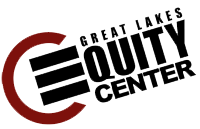Collaboration during IEP and IFSP Meetings in a Refugee Resettlement Community: Lessons from Cultural Liaisons
Teachers working with refugee families who are culturally and linguistically diverse (CLD) and receiving special education services often rely on cultural liaisons to provide interpreter and translator services during Individualized Educational Program (IEP) and Individualized Family Service Plan (IFSP) meetings. The purpose of this qualitative study was to interview nine cultural liaisons, who live in a refugee resettlement community, regarding their experiences and advice for teachers when conducting IEP and IFSP meetings with refugee families. Semistructured interviews resulted in themes or suggestions for teachers on how to prepare for the meetings, conduct the meetings, and communicate with families through the cultural liaison in addition to an appeal for teachers to learn about the cultures and consistently demonstrate respect. Implications for future research and teacher preparation are discussed.
Contributor Notes
ABOUT THE AUTHOR
Jennifer Hurley is the Program Coordinator for the Early Childhood Special Education (ECSE) Graduate and Undergraduate Programs at the University of Vermont.
Dave Clark graduated from the University of Vermont in with a M.Ed. in ECSE and is an ECSE teacher in Burlington, Vermont.
Katherine Fonseca graduated from the University of Vermont with a M.Ed. in ECSE and is teaching in a public charter school in Boston, Massachusetts.
Sabina Pyne graduated from the University of Vermont with a B.S. in ECSE and is a special educator in the first inclusive school in Kingston, Jamaica.
Rachel Warren graduated from the University of Vermont with a B.S. in ECSE and is an early childhood teacher in New York City.
The preparation of this article was supported in part by funding from the United States Health and Human Services, Administration on Developmental Disabilities, grant award 90DD0645 awarded to the Center on Disability and Community Inclusion, University of Vermont. The opinions expressed herein do not necessarily reflect those of the USHHS or the Administration on Developmental Disabilities, and no official endorsement should be inferred. All names have been changed to protect the confidentiality of the participants, programs, and communities.

